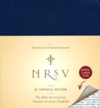Greek Esther 9
New Revised Standard Version, Anglicised
Victory of the Jews
9 Now on the thirteenth day of the twelfth month, which is Adar, the decree written by the king arrived. 2 On that same day the enemies of the Jews perished; no one resisted, because they feared them. 3 The chief provincial governors, the princes, and the royal secretaries were paying honour to the Jews, because fear of Mordecai weighed upon them. 4 The king’s decree required that Mordecai’s name be held in honour throughout the kingdom.[a] 6 Now in the city of Susa the Jews killed five hundred people, 7 including Pharsannestain, Delphon, Phasga, 8 Pharadatha, Barea, Sarbacha, 9 Marmasima, Aruphaeus, Arsaeus, Zabutheus, 10 the ten sons of Haman son of Hammedatha, the Bougean, the enemy of the Jews—and they indulged[b] themselves in plunder.
11 That very day the number of those killed in Susa was reported to the king. 12 The king said to Esther, ‘In Susa, the capital, the Jews have destroyed five hundred people. What do you suppose they have done in the surrounding countryside? Whatever more you ask will be done for you.’ 13 And Esther said to the king, ‘Let the Jews be allowed to do the same tomorrow. Also, hang up the bodies of Haman’s ten sons.’ 14 So he permitted this to be done, and handed over to the Jews of the city the bodies of Haman’s sons to hang up. 15 The Jews who were in Susa gathered on the fourteenth and killed three hundred people, but took no plunder.
16 Now the other Jews in the kingdom gathered to defend themselves, and got relief from their enemies. They destroyed fifteen thousand of them, but did not engage in plunder. 17 On the fourteenth day they rested and made that same day a day of rest, celebrating it with joy and gladness. 18 The Jews who were in Susa, the capital, came together also on the fourteenth, but did not rest. They celebrated the fifteenth with joy and gladness. 19 On this account, then, the Jews who are scattered around the country outside Susa keep the fourteenth of Adar as a joyful holiday, and send presents of food to one another, while those who live in the large cities keep the fifteenth day of Adar as their joyful holiday, also sending presents to one another.
The Festival of Purim
20 Mordecai recorded these things in a book, and sent it to the Jews in the kingdom of Artaxerxes both near and far, 21 telling them that they should keep the fourteenth and fifteenth days of Adar, 22 for on these days the Jews got relief from their enemies. The whole month (namely, Adar), in which their condition had been changed from sorrow into gladness and from a time of distress to a holiday, was to be celebrated as a time for feasting[c] and gladness and for sending presents of food to their friends and to the poor.
23 So the Jews accepted what Mordecai had written to them 24 —how Haman son of Hammedatha, the Macedonian,[d] fought against them, how he made a decree and cast lots[e] to destroy them, 25 and how he went in to the king, telling him to hang Mordecai; but the wicked plot he had devised against the Jews came back upon himself, and he and his sons were hanged. 26 Therefore these days were called ‘Purim’, because of the lots (for in their language this is the word that means ‘lots’). And so, because of what was written in this letter, and because of what they had experienced in this affair and what had befallen them, Mordecai established this festival,[f] 27 and the Jews took upon themselves, upon their descendants, and upon all who would join them, to observe it without fail.[g] These days of Purim should be a memorial and kept from generation to generation, in every city, family, and country. 28 These days of Purim were to be observed for all time, and the commemoration of them was never to cease among their descendants.
29 Then Queen Esther daughter of Aminadab along with Mordecai the Jew wrote down what they had done, and gave full authority to the letter about Purim.[h] 31 And Mordecai and Queen Esther established this decision on their own responsibility, pledging their own well-being to the plan.[i] 32 Esther established it by a decree for ever, and it was written for a memorial.
Footnotes
- Greek Esther 9:4 Meaning of Gk uncertain. Some ancient authorities add verse 5, So the Jews struck down all their enemies with the sword, killing and destroying them, and they did as they pleased to those who hated them.
- Greek Esther 9:10 Other ancient authorities read did not indulge
- Greek Esther 9:22 Gk of weddings
- Greek Esther 9:24 Other ancient witnesses read the Bougean
- Greek Esther 9:24 Gk a lot
- Greek Esther 9:26 Gk he established (it)
- Greek Esther 9:27 Meaning of Gk uncertain
- Greek Esther 9:29 Verse 30 in Heb is lacking in Gk: Letters were sent to all the Jews, to the one hundred and twenty-seven provinces of the kingdom of Ahasuerus, in words of peace and truth.
- Greek Esther 9:31 Meaning of Gk uncertain
New Revised Standard Version Bible: Anglicised Edition, copyright © 1989, 1995 the Division of Christian Education of the National Council of the Churches of Christ in the United States of America. Used by permission. All rights reserved.
Bible Gateway Recommends








